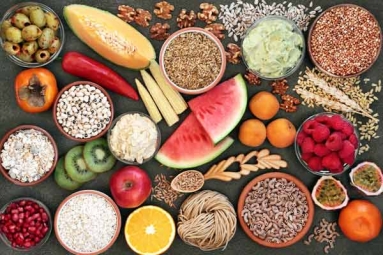
(Image source from: Canva.com)
Certain winter foods promote heart health by providing important nutrients, antioxidants and fiber that support cardiovascular function. During winter, blood pressure and cholesterol levels often rise due to reduced physical activity and seasonal changes. Heart-healthy winter foods can help manage these effects by reducing inflammation, improving cholesterol balance, and supporting blood circulation. Many of these foods contain omega-3 fatty acids, fiber, potassium and polyphenols, which together lower bad cholesterol, maintain healthy blood pressure and reduce the risk of cardiovascular disease. Including these foods in your winter diet can help prevent heart problems and improve your overall health. Read on for a list of winter foods you can add to your diet to improve your heart health. Here is the list:
Leafy greens: Winter vegetables like kale and spinach are rich in vitamins A, C and K, fiber and folic acid, all of which are good for heart health. This vegetable contains nitrates, which lower blood pressure and improve artery function. These antioxidants also fight oxidative stress, which can damage your heart.
Oranges: Oranges are rich in vitamin C, potassium and fiber, all of which support heart health. Potassium in oranges helps lower blood pressure and fiber reduces cholesterol absorption. Vitamin C strengthens the immune system and has a positive effect on general health, especially in the cold season.
Nuts: Nuts, especially walnuts and almonds, are very good for heart health as they are rich in omega-3 fatty acids, fiber and magnesium. Omega-3 fatty acids reduce inflammation and improve cholesterol levels, and magnesium helps maintain healthy blood pressure. Eating a handful of nuts a day makes for an easy and heart-healthy winter snack.
Pomegranate: Pomegranate contains powerful antioxidants called polyphenols, which have been shown to reduce plaque buildup in arteries. Drinking pomegranate juice or eating seeds in winter is great as it improves blood circulation and reduces the risk of cardiovascular disease.
Garlic: Garlic is a natural heart health food as it helps lower blood pressure and cholesterol levels. Its active ingredient, allicin, has anti-inflammatory properties that protect blood vessels. Adding garlic to winter dishes adds flavor and has a positive effect on the cardiovascular system.
Carrots: Carrots are rich in beta-carotene, fiber and potassium, which support heart health by lowering cholesterol and lowering blood pressure. These antioxidants can prevent heart disease by reducing inflammation. Carrots are versatile and can be eaten raw, steamed or added to soups.
Beetroot: Beetroot is rich in nitrates, which are converted into nitric oxide in the body, which helps relax blood vessels and lower blood pressure. Beets also contain antioxidants and fiber that support heart health. Eating roasted beets or adding beet juice to your diet can increase blood flow and protect your heart.
These winter foods are rich in essential nutrients and heart-healthy compounds that help reduce risk factors associated with cardiovascular disease. Adding these to your winter diet can improve your heart health and promote a healthier, more balanced diet during the colder months.


















